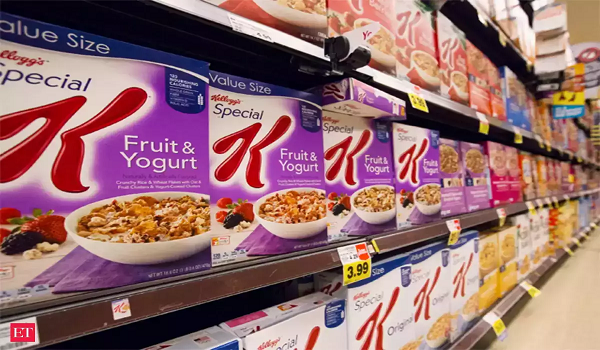Kellanova, the global cereal giant formerly known as The Kellogg Co., is facing significant challenges in India, where it has seen slow sales growth and declining profits. In a country that leans heavily towards traditional or savoury breakfast options, the company’s ready-to-eat cereals like cornflakes and muesli have struggled to gain traction. For FY24, Kellanova reported a mere 4% sales growth, reaching ₹1,610 crore, while net profit dropped by 19% to ₹97 crore. This is one of the slowest growth rates for the company in the past decade.
Kellanova entered the Indian market in 1994 with its first manufacturing plant and expanded its operations with a second unit in 2016, followed by a research and development centre aimed at creating breakfast products tailored for India and other emerging markets in the Asia-Pacific region. In an effort to broaden its consumer base, the company introduced Indian breakfast options such as Upma four years ago, but this strategy has not yet yielded the desired results.
An industry insider noted that the decline in cornflakes as a category is a significant factor behind Kellanova’s struggles, as the segment accounts for the majority of the company’s sales. While Kellanova has been pushing products like oats and muesli, these categories face intense competition from other brands.
The Indian breakfast market, valued at ₹3,000 crore, is dominated by traditional and savoury options, with competitors like MTR, ID Fresh, PepsiCo, and Marico leading the way. Consumers are increasingly shifting towards healthier options like oats and whole-grain meals, making it difficult for Kellanova to maintain its market share.
In India, the packaged food market is primarily driven by biscuits and salty snacks, worth nearly ₹90,000 crore, leaving little room for breakfast cereals to make a significant impact. Despite economic challenges, Indian consumers have not significantly altered their snacking habits, preferring indulgent snacks in smaller portions over healthier alternatives.
The rise of quick commerce has benefited brands offering premium products, and newer entrants like Tata Soulfull, Nestle, and Parle are gaining ground with their millet-based and other health-orientated breakfast options. As competition within the western breakfast segment heats up, Kellanova finds itself struggling to adapt to the evolving preferences of Indian consumers.
Kellanova’s name, a combination of “Kell” from Kellogg and “anova” from the Latin word ‘nova,’ reflects the company’s ambition to evolve as an innovative, next-generation global snacking powerhouse. However, in India, this evolution faces significant hurdles as traditional preferences continue to dominate the breakfast table.


